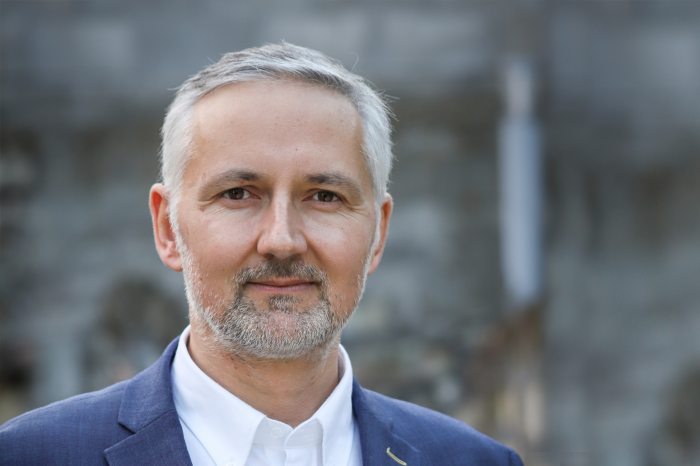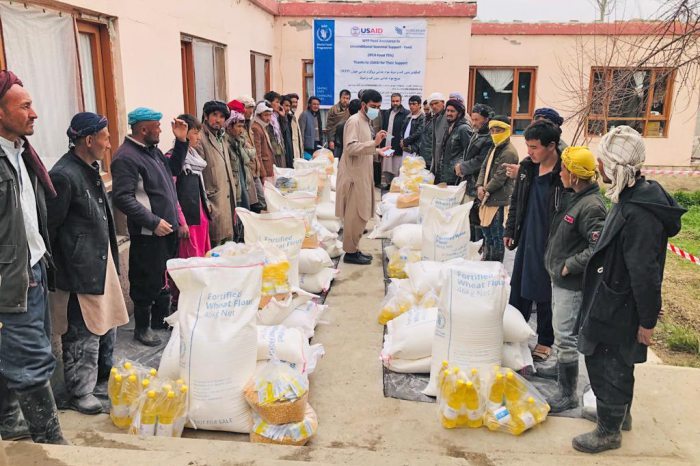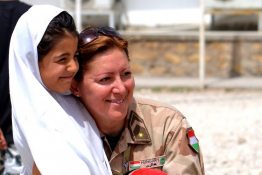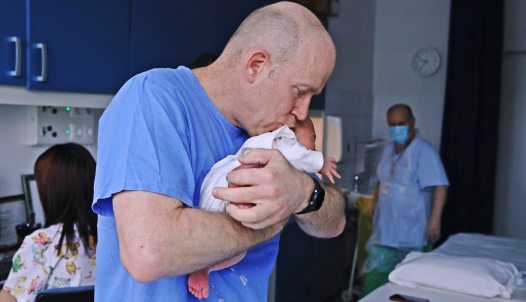"Some even sell their kids so that the rest of the family could eat." – HIA-Hungary helps in Afghanistan, too
Since the Taliban takeover, the vibrant and intense life in Afghanistan has been completely transformed. Many shops have closed, people have no money, and they have shut down. To make matters worse, hunger in this Asian country of 40 million is exacerbated by the Russian-Ukrainian war, which is now putting increased pressure on aid workers. But responding to this new crisis does not mean that donors and aid agencies have forgotten about other crises. HIA continues its international humanitarian work in Iraq, Ethiopia, Afghanistan, and wherever else it is relied upon. We asked Gábor Bálint, head of the HIA program in Afghanistan, who returned from the Middle East at the beginning of the year.
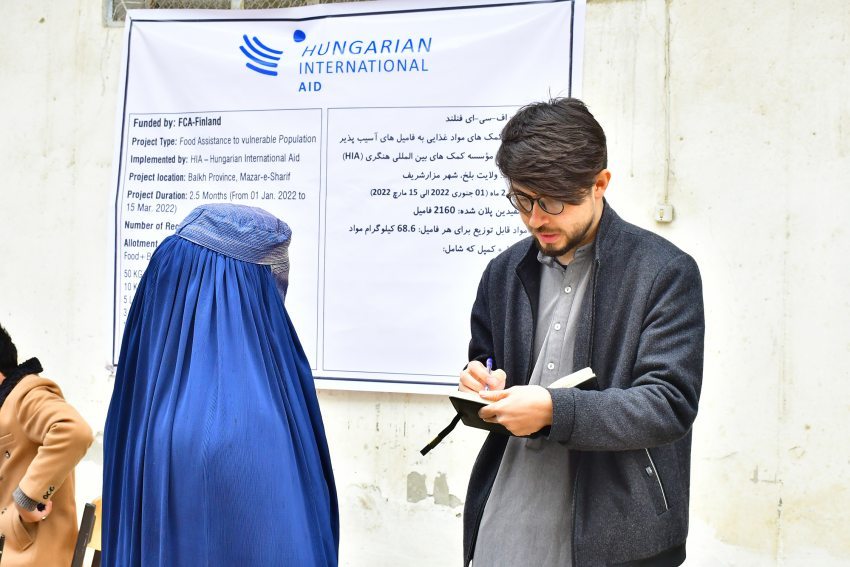
You have been to Afghanistan twenty times. Doesn't your family worry about you when you go?
Of course, every journey has its risks. But keeping in touch and being available constantly - which is also very important for security reasons - has helped a lot. The first one or two trips were of course memorable for everyone. It was an important moment when some of our Afghan colleagues came to Hungary and met my family, so they got to know who we were working with out there, and there were people to whom they could relate my absence. Over the years, the trips became a routine both for me and my family.
When you were there, what did you notice about the changes?
The very vibrant and intense life that used to be there has completely ceased in the evening and has also slowed down during the day. A lot of shops have closed, people have no money, they've shut down too.
If I had been part of the delegation, as a woman, would I have had more to fear now than before the Taliban took power?
We must distinguish between locals and foreigners. In the case of a Hungarian woman travelling to the country as an aid worker, there is no big difference. Of course, there are cultural rules, dress codes, and travel regulations that everyone has to follow, but that is not the problem. There have been significant but not uniform changes in the lives of local women. In the past, they could work as judges or soldiers, and we even know of a woman who functioned as a 'warlord'. Women appeared in the whole spectrum of society, and today everything varies from town to town and region to region. You don't see news ladies on Afghan public television, but you do on commercial channels, and you can see their faces, they just wear headscarves. In the countryside, the community has always been more conservative and closed, but across the country, we see that the situation of women has deteriorated a lot.
How does HIA help them?
In the past, we have had programs for single mothers that helped them find a living. Currently, they can learn bag-making, dress-making, and other trades, for which we provide a starter kit, and we also support their market access.
In addition to human rights abuses, the biggest problem in Afghanistan right now is famine, which is affecting the whole country. According to UNICEF, the number of malnourished children has doubled in six months. How did you see the situation when you were there at the beginning of the year?
We are in the twenty-fourth hour. Right now, people in Afghanistan are fighting for survival.
Some even sell their children, typically their daughters, for a minimal amount of money so that the rest of the family can eat.
Are these children being trafficked?
It's a completely different world, it’s not necessarily crime that guides this. In some starving families with 8-10 children, one of the girls is usually sold to a distant relative to work, or to a rich man in the village, either as a future wife or to do housework. The current situation is that without the help of aid agencies, hunger would spread to an even greater extent throughout the country.
Afghanistan is home to around 40 million people. How does HIA choose who to support?
In the regions where we work, people are assessing needs door-to-door. We also coordinate programs with a range of actors - government agencies, ministries, local authorities, and aid agencies. Under the UN World Food Programme, we are now distributing 15,000 tonnes of food to more than 200,000 people, following a major preparatory effort.
We can't just turn up in a truck and drop the bags.
We had discussions both in Mazar-e-Sharif and in a small rural province, and there was a big difference between the two administrations. We could sense that these were new provincial leaders who had spent the last 20 years fighting the former government forces and the international military. Some of them were looking at us with very piercing eyes. We negotiated bearing many aspects in mind, and they finally approved all our programs and even accepted the projects in writing. It may sound strange that, in a country where people are literally starving and everything is chaotic, there is some kind of administration, but it exists and, if we follow the rules, it guarantees certain security if we accept that we can only provide humanitarian aid.
After negotiations what is the next step?
In the cities where we work, our people go door-to-door and assess needs. Does the family have a member with a disability, or is the head of the household a woman or child?
The keyword is need, we don't look at the reasons why someone is in a situation where they need immediate help.
Later, this information will be entered into databases, and we will continue to implement the aid program, distributing food and other aid. Of course, there are a lot of other steps and procedures that we also carry out, which I could go on about until morning. At the moment we are working mainly with the UN World Food Programme.
What long-term development programs is HIA working on?
Since the early 2000s, we have implemented many rural development, education, health, and rehabilitation programs, but the priority now is to give people something to eat. Of course, as well as providing aid, we also need to support livelihoods. The unemployment rate is very high: we advertised a job basically for a narrow group of people who can speak English, but three thousand people applied. But then there is the Income for Work program, for example, where we are also working on irrigation canals and flood defenses, and rural development programs. Afghanistan is a country with a lot of mountains, water runs off quickly from the high grounds and can cause flooding, but if we can build a reservoir, for example, then they can irrigate and water animals. We have plans to reinvigorate these programs.
How is the Russian-Ukrainian war affecting the crisis in Afghanistan, hunger, and food programs?
In addition to the unforeseen political interactions, the direct impact is already being felt. This is reflected both in the reduction of international resources allocated to aid in Afghanistan and in the general rise in prices.
The price of basic foodstuffs has risen by 30-40% in a few months, unemployment has continued to rise, and daily wages of 2,5-5 USD - for those lucky enough to find work - have fallen.
Before the war, mass starvation seemed to have been averted. The unfreezing of the Afghan central bank's cash reserves also gave cause for hope. Now, however, unforeseen developments - not only in Afghanistan - have begun to suggest that, despite stabilization efforts, another serious crisis could emerge in the country.
Another aspect is that, while the crisis in Afghanistan seemed to be the most dominant humanitarian crisis of the period, the situation in the neighboring country has led us to focus a significant part of our resources on the work in Ukraine in recent months. But this does not mean that donors and aid agencies have forgotten about other crises; HIA is continuing its international humanitarian work in Iraq, Ethiopia, Afghanistan, and wherever else it relied upon.
UPDATE: In the first week of May, the Taliban ordered women in Afghanistan to wear burqa, a full-body covering in public places, Euronews reports. It is the strictest restriction on women's rights since the radical Islamists took power in August last year. An official from the Taliban's Office of Virtue said that women who do not wear the burqa will first be identified and then their guardians will be informed. He said that the women should be punished and their fathers or nearest male relatives should be taken to the relevant department for an explanation. In the worst case, the men could be sent to prison or dismissed from their public office.
